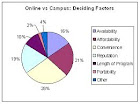The Department of Education’s Investing in Innovation (i3) competition provides funding to school districts and non-profit organizations around the country to develop new approaches to longstanding challenges in education. Today, Secretary of Education Arne Duncan announced the 23 applicants who will receive grants from the 2011 i3 competition. For the first time, Science, Technology, Engineering, and Math (STEM) education was a priority of the competition. Five of the 23 awards will address that critical area and include programs devoted to:
- Expanding student access to STEM Advanced Placement courses;
- Creating an “innovation ecosystem” that identifies specific barriers to success in STEM courses and connects schools with instructional designers to help overcome them; and
- Developing a robotics program to help reduce summer learning loss in middle school.
Other areas that i3 grants will address include teacher and principal effectiveness; high-quality standards and assessments; turning around low-performing schools; and improving rural achievement. Some of the projects in these areas will:
- Expand an early childhood program that improves school readiness and increases family involvement in education;
- Use technology for teacher coaching, professional development, and recruiting, including building professional development “recommendation engines” like those used by Amazon and Netflix; and
- Turn around low-performing rural high schools by implementing a STEM and technology-supported school model.
In addition to the $148 million in funding provided by the Department of Education, the applicants raised $18 million in private-sector commitments from a wide range of philanthropic organizations, local businesses, and individuals.






